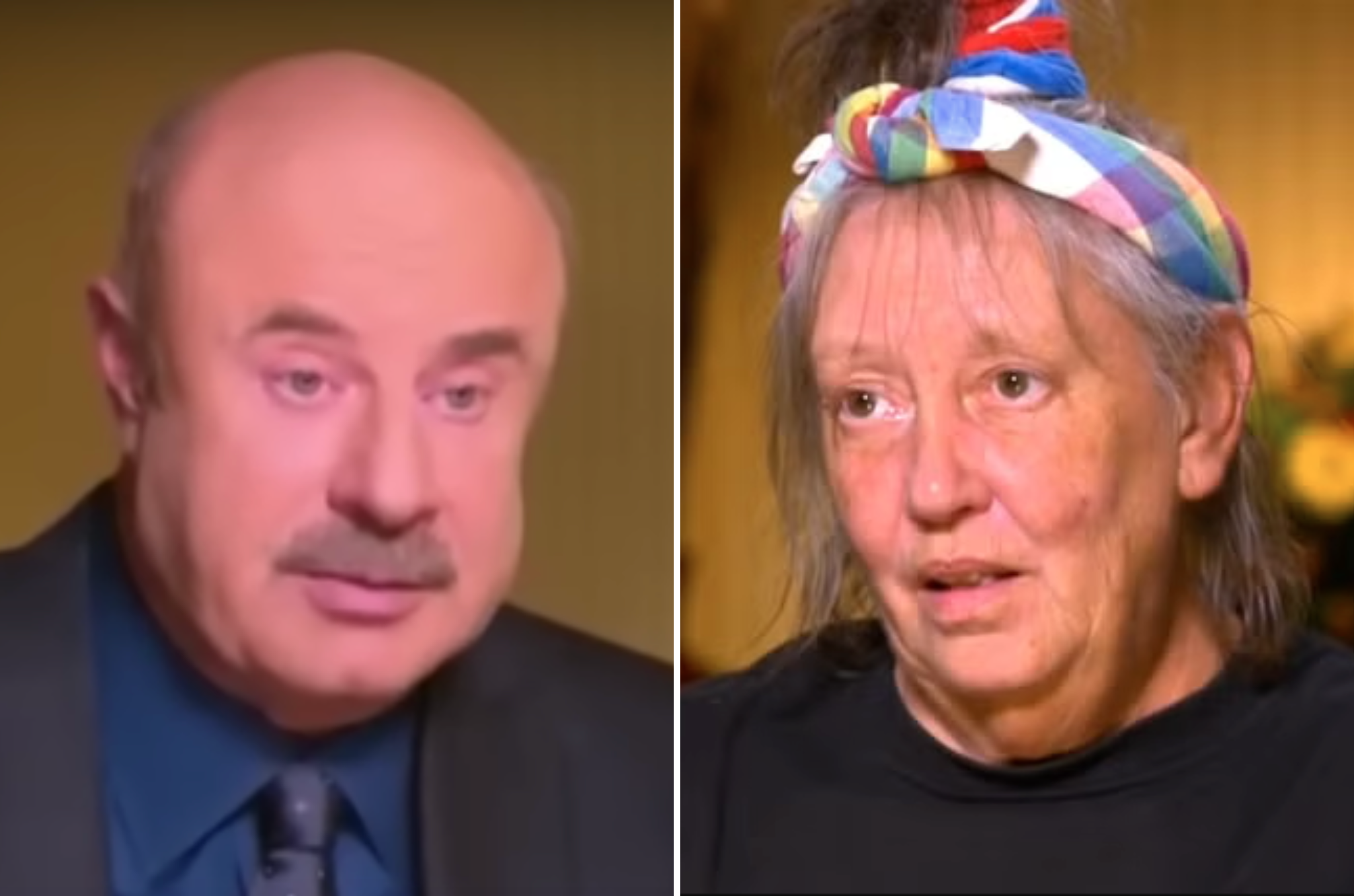Dr Phil had ‘no regrets’ about infamous 2016 interview with Shelley Duvall
Talk show host controversially interviewed ‘The Shining’ star when she was mentally unstable

Your support helps us to tell the story
From reproductive rights to climate change to Big Tech, The Independent is on the ground when the story is developing. Whether it's investigating the financials of Elon Musk's pro-Trump PAC or producing our latest documentary, 'The A Word', which shines a light on the American women fighting for reproductive rights, we know how important it is to parse out the facts from the messaging.
At such a critical moment in US history, we need reporters on the ground. Your donation allows us to keep sending journalists to speak to both sides of the story.
The Independent is trusted by Americans across the entire political spectrum. And unlike many other quality news outlets, we choose not to lock Americans out of our reporting and analysis with paywalls. We believe quality journalism should be available to everyone, paid for by those who can afford it.
Your support makes all the difference.Dr Phil defended his controversial interview with The Shining star Shelley Duvall a year before her death.
The beloved actor, who died aged 75 on Thursday (July 11) from complications linked to diabetes, made a rare appearance on Dr Phil’s daytime talk show in 2016.
At the time, Duvall had retired from acting and public life on a hiatus that lasted from 2002 to 2022.
Titled A Hollywood Star’s Descent Into Mental Illness: Saving The Shining’s Shelley Duvall, the infamous episode featured an hour-long sit-down interview in which Duvall made several troubling claims about having a “whirring disc” inside of her, as well as being threatened by “the sheriff of Nottingham.”
She even spoke about her belief that her Popeye co-star Robin Williams, who had died two years prior, was still alive – as a shapeshifter.
At one point during the segment, Duvall told Dr Phil point blank: “I’m very sick. I need help.”
“Well, that’s why I’m here,” the TV personality responded. On the show, he claimed that Duvall would receive treatment from the best specialists for her physical and mental illnesses.
Later on in the episode, though, he stated that “Shelley still refused to take any medications, and she would not sign the paperwork required to treat her.” He explained that “she was accompanied by trained professionals and was safely returned to her family and boyfriend at home.”

Dr Phil faced major backlash for the interview, with Rosemary’s Baby actor Mia Farrow arguing that there should be laws “to protect mentally ill people from TV talk show predators like @DrPhil who is exploiting Shelly Duvall for his own gain laws.”
Vivian Kubrick, the daughter of Duvall’s Shining director, Stanley Kubrick, also spoke out against the “exploitative” episode, calling it “shameful” and a form of “lurid entertainment.”

Watch Apple TV+ free for 7 days
New subscribers only. £8.99/mo. after free trial. Plan auto-renews until cancelled

Watch Apple TV+ free for 7 days
New subscribers only. £8.99/mo. after free trial. Plan auto-renews until cancelled
“You are putting Shelley Duvall ‘on show’ while she is suffering from a pitiable state of ill health,” she wrote. “Unquestionably, this is purely a form of lurid and exploitative entertainment – it’s appallingly cruel.”
“It did nothing for her,” Duvall’s longtime partner Dan Gilroy told The New York Times earlier this year. “It just put her on the map as an oddity.”
Speaking to The Hollywood Reporter in 2021 about the Dr Phil interview, Duvall said: “I found out the kind of person he is the hard way. My mother didn’t like him, either. A lot of people, like Dan, said, ‘You shouldn’t have done that, Shelley.’”
Still, despite all of the criticism about the interview, Dr Phil told CNN’s Chris Wallace in 2023: “Oh I don’t regret what I did.”
He did admit, however, that the special was “promoted in a way that people thought was unbecoming.”
“There are parts of that story I haven’t talked about and won’t talk about in specifics, but I can say generally that we worked with her family,” Dr Phil recalled. “We worked with her for over a year off-camera after that fact, providing her opportunities for inpatient and outpatient psychiatric care – I can’t tell you the extent we went to.”
Turning the critical lens back on those who condemned the interview, he said: “Nobody asked them what they ever did to try and help her. And the answer is not a damn thing.”
Join our commenting forum
Join thought-provoking conversations, follow other Independent readers and see their replies
Comments